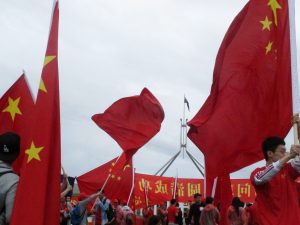The continuing saga of self-professed Chinese intelligence operative Wang Liqiang, who sought the protection of the Australian authorities in November 2019, has sent shockwaves around the world. Regardless of the veracity of Wang’s claims about Chinese government intelligence activities, he has brought the heated topic of foreign interference in Australia back to a boil.
Public debate on foreign interference is not new to Australia. Ever since the Four Corners report Power and Influence in 2017 and Clive Hamilton’s book Silent Invasion in 2018, both looking into Chinese Communist Party influence and interference in Australia, the topic has been debated intensely. Wang’s sweeping claims have just thrust it back into the public spotlight.
When it comes to the public debate on foreign interference in Australia, the only country that gets mentioned regularly is China. Common topics discussed under the foreign influence umbrella include foreign political donations, foreign students in Australia, research collaboration, and foreign investment, especially in critical infrastructure.
What Is Foreign Interference?
In general terms, the goal of foreign influence is to shape the decision-making calculus in another country so it will make decisions favorable to the influencer country. Countries use a variety of tools to influence each other. Foreign interference refers to a subset of these tools that are coercive, covert, deceptive, and clandestine. These foreign interference methods are generally seen as detrimental by democracies, and are contrasted with accepted means of foreign influence, such as public diplomacy.
However, democracies also practice foreign interference. Some now well-known examples occurred during the Cold War, including the U.S. operations in Iran in the 1950s and Nicaragua in the 1980s. There are also more contemporary examples of U.S. interference in the Middle East.
Foreign interference tools are usually used where acceptable forms of influence are not possible or could not achieve the desired outcomes. Countries like the United States do not need to interfere in Australia, because by and large Australian elites are amicable to U.S. geostrategic interests. The same cannot be said of China in Australia.
For China, there is a general lack of goodwill and trust among the Australian elite toward the Chinese Communist Party (CCP). The low level of China’s soft power in Australia adds pressure for the CCP to adopt other means of driving its interests with respect to Australia.

































